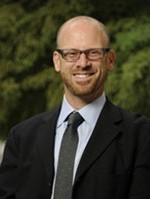The paradoxes and promises of the health care system will be explored at a two-day conference sponsored by Vanderbilt’s Center for Medicine, Health, and Society.
The Politics of Health Conference, to be held Oct. 3-4, is organized around a series of interlinked themes that speak to the scale, urgency and intimacy of health as a critical American economic and political issue: health inequality, health infrastructure, health and social justice, and health-care aesthetics. The conference, held at Sarratt Student Center and The Martha River Ingram Commons on the Vanderbilt campus, is free and open to the public. A schedule, maps, speaker bios, and other information are available at the website.
Highlights include a panel on justice and activism that will consider the possibilities for health justice in settings of scarce money, time and attention–including an extended discussion of the Affordable Care Act. A panel on health aesthetics and infrastructures will examine how seemingly distant economic and legal decisions about health materializein everyday physical, social and natural environments. And a panel on the social foundations of health will take on the persistent causes and consequences of health disparities.

Invited speakers include national and international experts in fields ranging from health economics to religion to sociology and medicine. Keynotes include Emilie Townes, dean of the Vanderbilt Divinity School; Sue Siegel, CEO of Market Innovations at General Electric; Milton Curry, associate dean of the Taubman College of Architecture and Urban Planning at the University of Michigan; Tyrone Forman, director of the James Weldon Johnson Institute for the Study of Race and Difference at Emory University; and Priscilla Wald, professor of English at Duke University.
The Center for Medicine, Health and Society is an innovative multidisciplinary center that combines faculty and students from medicine, public health, the humanities and the social sciences in the project of fostering productive dialogue across disciplinary boundaries. Under the directorship of Jonathan M. Metzl, MHS, has recently moved to a newly constructed center space, announced eight faculty hires, and introduced a new M.A. program in the Social Foundations of Health.